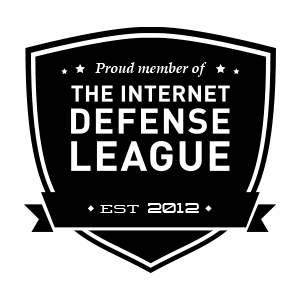Forum Replies Created
-
AuthorPosts
-
It is something to be concerened about but it may not be malicious. If you are getting a read/write error and you also cannot delete this file then there is some kind of permission problem with the file. You may need to get your hosting provider to fix the permissions on the file or delete that plugin so that you can reinstall it.
So my plugin is finding and fixing these threats but you just keep getting hacked with more of them.
Look in the Quarantine for the exact time of the last infection that you cleaned, then check you acces_log file to see what scripts or URLs were being accessed at that exact time. Hopefully that will indicate how you are getting re-infected so that you can plug up the security hole.
You should have gotten a registration email with your login info at every email address that you used to register a site. You can login to gotmls.net with those accounts and then transfer your registrations to your main email account 😉
If you are not sure what email you used it was probably your default admin email for that WordPress site.
If you don’t know what email it was or you cannot receive email at that address then you can email me directly with your registration details and I can help you reassign those domains to the account that you want them to be under.
Please just use the pre-filled form on the right side of the Anti-Malware Settings page in your wp-admin to register the key that is generated for each site after you click “Get FREE Key”.
This code is already in my definition updates but it is JavaScript so it is usually wrapped in a script tag. Can you send me the whole infected file so I can see how it is embedded in the file and verify that it matches the definition I have for it?
Thanks for the login 😉
I found this in your core files and added this new variant to the definition updates.
Your site is now clean 🙂
This threat is already in my definitions, have you downloaded the latest definition updates?
If you still haven’t found it then you can email me directly with your wp-admin login and I’ll figure out where it’s hiding.
A Read/Write Error simply means that my plugin was unable to read (or, when attempting to fix a file, write to) that file, usually because of the file permissions but sometimes it is because of the files size and/or the memory_limit being set too low in your php.ini file. It does not necessarily mean that those file are bad or malicious but it is an indication that there is some kind of issue on your server that needs to be investigated further. I would never suggest anyone delete files on there server just because there was a read/write error, but if you are able to download and open the files and you find the contents to be completely malicious then you can delete them for that reason (remember that some files that contain malicious code may also have code in then that your site need in order to function correctly).
Ok, Well if your PC is clean then maybe it some malware on your site that is trying to redirect you to localhost. In that case then the Norton warning you are getting should stop when we get your site clean 😉
So you cleaned that aurorauniformspr.com site with the newest definitions but it is still blacklisted by Google.
I see from Google’s Safebrowsing Diagnostic page that they updated info about your site today but I cannot see the details of what they found:
https://www.google.com/transparencyreport/safebrowsing/diagnostic/index.html#url=aurorauniformspr.comCan you add my email address (eli AT gotmls DOT net) to the users in your Google Webmaster Tools account for that site?
https://www.google.com/webmasters/tools/user-admin?hl=en&authuser=0&siteUrl=http%3A%2F%2Faurorauniformspr.com%2FThank you for your donation but it is not necessary to donate in order to clean your site, donations only unlock additional features.
Did you download the latest definition updates?
When you ran the scan, did it find and remove any Known Threats?
after removing the threats you will still need to Request a Review in Google Webmaster Tools to have them take you off the blacklist. Submitting a current and clean XML Sitemap will also help expedite your sites search results returning to normal.
This looks like a warning about a threat on your localhost, are you running a webserver on your PC?
You should scan your local machine for viruses.
This is a JavaScript Error. I don’t see this error on your login page right now so it may have just been a fluke but if it happens again you can check the Error Console in your browser’s Element Inspector to see why the JavaScript is not working on your wp-login.php page.
Under “What to scan:” click on “plugins” and then check the box for “mailchimp-for-wp” in the popup for “Only Scan These Folders:”.
You could try increasing the memory limit to 256M but normally 128M should be enough. Maybe it’s having trouble with those files for some other reason. It is a pretty unusual that it would take 30 minutes just to scan the plugins directory. Your server may just be really under-powered regardless of your php.ini settings.
(I do my best to consider the efficiency of the scan process, however it is always going to be taxing on your server to read and parse every file looking for malicious patterns in the code. As a comparison to your server, it take less than 10 minutes to scan the plugins directory on one of my sites and I have over 60 plugins, with almost 4000 files scanned.)
Good question. The permission look right on those files so I would guess that it has to do with the memory_limit in your php.ini file being set too low for scanning larger files.
-
AuthorPosts

